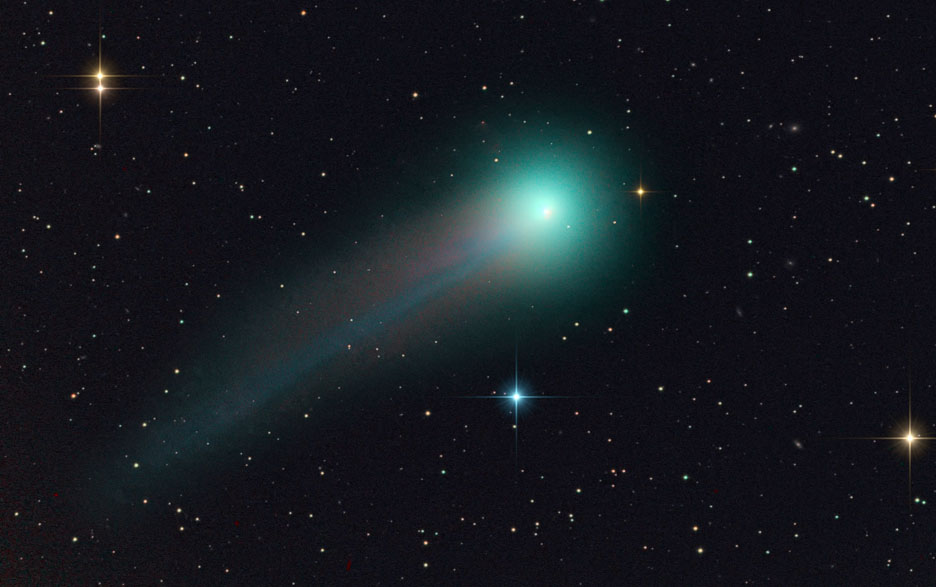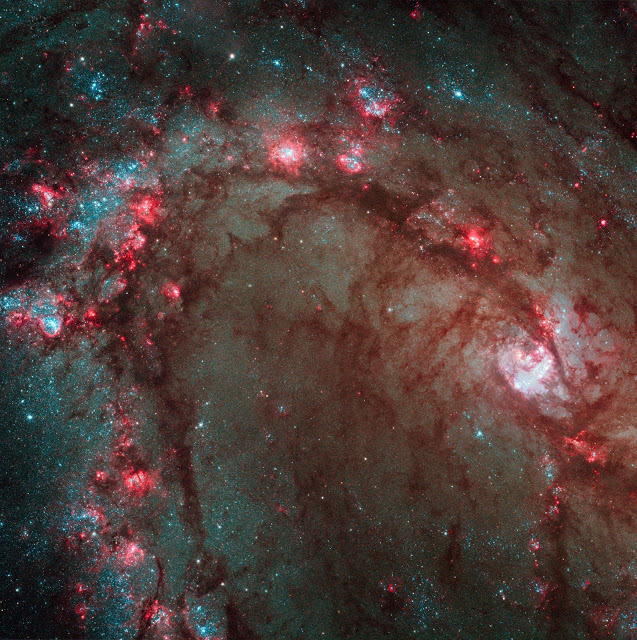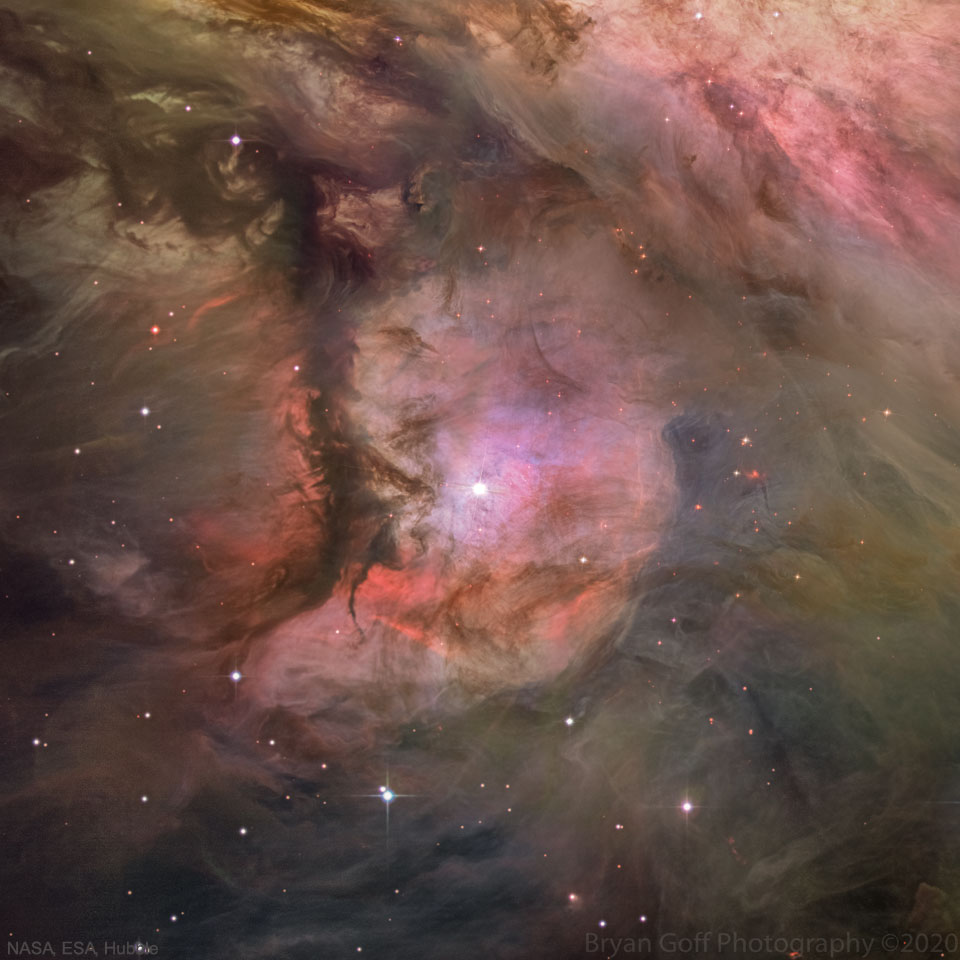Blog
Comet C/2019 U6 or Lemmon Comet. Comet Lemmon’s delicate ion and dust tails overlap in this photo taken on June 29, 2020, with a 500-mm telescope. The comet is named for the Mt. Lemmon Survey (part of the Catalina Sky Survey) conducted near the summit of Mount Lemmon north of Tucson. Lemmon makes its initial appearance low in the western sky around July 4th in Sextans and gradually ascends, crossing the rich Virgo Cluster of galaxies at mid-month before reaching Coma Berenices at month’s end. The comet passed perihelion on June 18 and swung closest to Earth at 124 million km on June 29th. Like NEOWISE, it will slowly fade, dimming by about 1.5 magnitudes during July.

Jai Johanny Johanson (born July 8, 1944), frequently known by the stage name Jaimoe, is an American drummer and percussionist. He is best known as one of the founding members of The Allman Brothers Band.
Johanson came up in the R&B world and began drumming at an early age, often accompanied by friend Lamar Williams on bass. Johanson backed soul singers, including a membership in Otis Redding‘s touring band in 1966, and afterward touring with the acclaimed soul duo, Sam & Dave. After joining up with Duane Allman in February 1969, he quickly became the first recruit into Allman’s new group, soon joined by bassist Berry Oakley, fellow drummer Butch Trucks, guitarist Dickey Betts and lastly Allman’s younger brother, singer, organist and pianist Gregg Allman. The group, quickly named after the brothers Allman, began recording demos that April in Macon, Georgia, which became the group’s home base.
According to The Wall Street Journal, Jaimoe’s “passion for jazz helped form the nascent Allman Brothers Band’s improvisational approach, which incorporated blues, country and Western swing into a unique musical approach that nodded toward the Grateful Dead’s West Coast explorations but never became as loosey-goosey.”
“Music is music, and there’s no such things as jazz or rock ’n’ roll,” Jaimoe told the WSJ. “I wanted to be the world’s greatest jazz drummer, and I thought rock or funk were too easy—then I got a chance and couldn’t play what needed to be played. I had to learn, and music was everything to me.”
https://www.youtube.com/watch?v=yJ9twEldw_M
more...Johnnie Clyde Johnson (July 8, 1924 – April 13, 2005) was an American pianist who played jazz, blues and rock and roll. His work with Chuck Berry led to his induction into the Rock and Roll Hall of Fame. He was posthumously awarded the Congressional Gold Medal for breaking racial barriers in the military, as he was a Montford Point Marine – where the African-American unit endured racism and inspired social change while integrating the previously all-white Marine Corps during World War II.
Johnson was born in Fairmont, West Virginia, United States. He began playing the piano in 1928. He joined the United States Marine Corps during World War II and became a member of Bobby Troup‘s all-serviceman jazz orchestra, the Barracudas. After his service, he moved to Detroit and then Chicago, where he sat in with many notable artists, including Muddy Waters and Little Walter.
He moved to St. Louis, Missouri, in 1952 and immediately assembled a jazz and blues group, the Sir John Trio, with the drummer Ebby Hardy and the saxophonist Alvin Bennett. The three had a regular engagement at the Cosmopolitan Club, in East St. Louis. On New Year’s Eve 1952, Bennett had a stroke and could not perform. Johnson, searching for a last-minute replacement, called a young man named Chuck Berry, the only musician Johnson knew who, because of his inexperience, would likely not be playing on New Year’s Eve. Although then a limited guitarist, Berry added vocals and showmanship to the group. Bennett was not able to play after his stroke, so Johnson hired Berry as a permanent member of the trio.
Berry took one of their tunes, a reworking of Bob Wills‘s version of “Ida Red“, to Chess Records in 1955. The Chess brothers liked the song, and soon the trio were in Chicago recording “Maybellene” and “Wee Wee Hours” – a song Johnson had been playing as an instrumental for years, for which Berry quickly wrote some lyrics. “Maybellene” got Berry and Johnson onto the Billboard charts in 1955. Berry got signed as a solo act, and Johnson and Hardy became part of Berry’s band. Said Johnson, “I figured we could get better jobs with Chuck running the band. He had a car and rubber wheels beat rubber heels any day.”
more...Louis Thomas Jordan (July 8, 1908 – February 4, 1975 Brinkley, AK) was an American musician, songwriter and bandleader who was popular from the late 1930s to the early 1950s. Known as “The King of the Jukebox“, his highest profile came towards the end of the swing era.
Jordan was a talented singer with great comedic flair, and he fronted his own band for more than twenty years. He duetted with some of the biggest solo singing stars of his time, including Bing Crosby, Ella Fitzgerald and Louis Armstrong. Jordan was also an actor and a film personality—he appeared in dozens of “soundies” (promotional film clips), made numerous cameos in mainstream features and short films, and starred in two musical feature films made especially for him. He was an instrumentalist who played all forms of the saxophone but specialized in the alto. He also played the piano and clarinet. A productive songwriter, he wrote or co-wrote many songs that were influential classics of 20th-century popular music.
Jordan began his career in big-band swing jazz in the 1930s, but he became known as one of the leading practitioners, innovators and popularizers of jump blues, a swinging, up-tempo, dance-oriented hybrid of jazz, blues and boogie-woogie. Typically performed by smaller bands consisting of five or six players, jump music featured shouted, highly syncopated vocals and earthy, comedic lyrics on contemporary urban themes. It strongly emphasized the rhythm section of piano, bass and drums; after the mid-1940s, this mix was often augmented by electric guitar. Jordan’s band also pioneered the use of the electronic organ.
With his dynamic Tympany Five bands, Jordan mapped out the main parameters of the classic R&B, urban blues and early rock-and-roll genres with a series of highly influential 78-rpm discs released by Decca Records. These recordings presaged many of the styles of black popular music of the late 1940s, 1950s and 1960s and exerted a strong influence on many leading performers in these genres. Many of his records were produced by Milt Gabler, who went on to refine and develop the qualities of Jordan’s recordings in his later production work with Bill Haley, including “Rock Around the Clock“.
Jordan ranks fifth in the list of the most successful African-American recording artists according to Joel Whitburn‘s analysis of Billboard magazine’s R&B chart. Though comprehensive sales figures are not available, he had at least four million-selling hits during his career. Jordan regularly topped the R&B “race” charts and was one of the first black recording artists to achieve significant crossover in popularity with the mainstream (predominantly white) American audience, having simultaneous Top Ten hits on the pop charts on several occasions.
more...Americans have plans to send a message at the checkout counter on Tuesday amid renewed calls for racial equality across the country. Tuesday, July 7, has been designated Blackout Day, a call to action and “day of solidarity in America where not one Black person in America spends a dollar” outside of businesses owned by Black people,” according to the movement’s official website.
The initiative comes in the wake of protests against police brutality and renewed attention to the nation’s decades-long racial wealth gap. As society has awakened to unfairness plaguing Black people in America, Black-owned businesses are getting showered with support in a loosely connected push for social and economic justice.


Sir Richard Starkey(born 7 July 1940), known professionally as Ringo Starr, is an English musician, singer, songwriter and actor who gained worldwide fame as the drummer for the Beatles. He occasionally sang lead vocals with the group, usually for one song on each album, including “Yellow Submarine“, “With a Little Help from My Friends” and their cover of “Act Naturally“. He also wrote and sang the Beatles’ songs “Don’t Pass Me By” and “Octopus’s Garden“, and is credited as a co-writer of others.
Starr was afflicted by life-threatening illnesses during childhood, with periods of prolonged hospitalisations. He briefly held a position with British Railbefore securing an apprenticeship as a machinist at a Liverpool equipment manufacturer. Soon afterwards, he became interested in the UK skifflecraze and developed a fervent admiration for the genre. In 1957, he co-founded his first band, the Eddie Clayton Skiffle Group, which earned several prestigious local bookings before the fad succumbed to American rock and roll by early 1958. When the Beatles formed in 1960, Starr was a member of another Liverpool group, Rory Storm and the Hurricanes. After achieving moderate success in the UK and Hamburg, he quit the Hurricanes when he was asked to join the Beatles in August 1962, replacing Pete Best.
In addition to the Beatles’ films, Starr has acted in numerous others. After the band’s break-up in 1970, he released several successful singles including the US top-ten hit “It Don’t Come Easy“, and number ones “Photograph” and “You’re Sixteen“. His most successful UK single was “Back Off Boogaloo“, which peaked at number two. He achieved commercial and critical success with his 1973 album Ringo, which was a top-ten release in both the UK and the US. He has featured in numerous documentaries, hosted television shows, narrated the first two series of the children’s television programme Thomas & Friends and portrayed “Mr. Conductor” during the first season of the PBS children’s television series Shining Time Station. Since 1989, he has toured with thirteen variations of Ringo Starr & His All-Starr Band.
Starr’s playing style, which emphasised feel over technical virtuosity, influenced many drummers to reconsider their playing from a compositional perspective. He also influenced various modern drumming techniques, such as the matched grip, tuning the drums lower, and using muffling devices on tonal rings. In his opinion, his finest recorded performance was on the Beatles’ “Rain“. In 1999, he was inducted into the Modern Drummer Hall of Fame. In 2011, Rolling Stone readers named him the fifth-greatest drummer of all time. He was inducted twice into the Rock and Roll Hall of Fame, as a Beatle in 1988 and as a solo artist in 2015, and appointed a Knight Bachelor in the 2018 New Year Honours for services to music. In 2018, he was cited as the wealthiest drummer in the world, with a net worth of $350 million.
more...Josef Erich Zawinul (7 July 1932 – 11 September 2007) was an Austrian jazz keyboardist and composer. First coming to prominence with saxophonist Cannonball Adderley, Zawinul went on to play with Miles Davis and to become one of the creators of jazz fusion, a musical genre that combined jazz with rock. He co-founded the groups Weather Report and The Zawinul Syndicate. He pioneered the use of electric piano and synthesizer, and was named “Best Electric Keyboardist” twenty-eight times by the readers of Down Beat magazine.
Zawinul grew up in Vienna, Austria. Accordion was his first instrument. When he was six or seven, he studied clarinet, violin, and piano at the Vienna Conservatory (Konservatorium Wien). During the 1950s he was a staff pianist for Polydor. He worked as a jazz musician with Hans Koller, Friedrich Gulda, Karl Drewo, and Fatty George. In 1959 he moved to the U.S. to attend Berklee College of Music, but a week later he received a job offer from Maynard Ferguson, so he left school and went on tour. He then accompanied Dinah Washington. He spent most of the 1960s with Cannonball Adderley. During this time he wrote “Mercy, Mercy, Mercy” and “Walk Tall”, and “Country Preacher” and played electric piano. At the end of the decade he recorded with Miles Davis on In a Silent Way as Davis was establishing the genre of jazz fusion, combining jazz with rock.
more...Henry “Hank” Mobley (July 7, 1930 – May 30, 1986) was an American hard bop and soul jazz tenor saxophonist and composer. Mobley was described by Leonard Feather as the “middleweight champion of the tenor saxophone”, a metaphor used to describe his tone, that was neither as aggressive as John Coltrane nor as mellow as Stan Getz, and his style that was laid-back, subtle and melodic, especially in contrast with players like Sonny Rollins and Coltrane. The critic Stacia Proefrock claimed he is “one of the most underrated musicians of the bop era.”
Mobley was born in Eastman, Georgia, but was raised in Elizabeth, New Jersey, near Newark. When he was 16, an illness kept him in the house for several months. His grandmother thought of buying a saxophone to help him occupy his time, and it was then that Mobley began to play. He tried to enter a music school in Newark, but could not, since he was not a resident, so he instead studied music through books at home. At 19, he started to play with local bands and, months later, worked for the first time with musicians like Dizzy Gillespie and Max Roach. He took part in one of the earliest hard bop sessions, alongside Art Blakey, Horace Silver, Doug Watkins and trumpeter Kenny Dorham. The results of these sessions were released as Horace Silver and the Jazz Messengers. When The Jazz Messengers split in 1956, Mobley continued on with pianist Silver for a short time, although he did work again with Blakey some years later, when the drummer appeared on Mobley’s albums in the early 1960s.
In 1956, Mobley recorded the album Mobley’s Message with Jackie McLean and Donald Byrd. AllMusic gave the album 4 stars out of 5, and users gave the album 4.5 out of 5 stars.
more...Lloyd “Tiny” Grimes (July 7, 1916 – March 4, 1989) was an American jazz and R&B guitarist. He was a member of the Art Tatum Trio from 1943 to 1944, was a backing musician on recording sessions, and later led his own bands, including a recording session with Charlie Parker. He is notable for playing the electric tenor guitar, a four-stringed instrument.
Grimes was born in Newport News, Virginia, United States, and began his musical career playing drums and one-fingered piano. In 1938 he took up the electric four-string tenor guitar. In 1940 he joined the Cats and the Fiddle as guitarist and singer. In 1943 he joined the Art Tatum Trio as guitarist and made a number of recordings with Tatum.
After leaving Tatum, Grimes recorded with his own groups in New York and with a long list of leading musicians, including vocalist Billie Holiday. He made four recordings with his own group, augmented with Charlie Parker: “Tiny’s Tempo”, “Red Cross”, “Romance Without Finance”, and “I’ll Always Love You Just the Same”, the latter two featuring Grimes’ singing.
In the late 1940s, he had a hit on a jazzed-up version of “Loch Lomond“, with the band billed as Tiny “Mac” Grimes and the Rocking Highlanders and appearing in kilts. This group included tenor saxman Red Prysock and singer Screaming Jay Hawkins. Grimes continued to lead his own groups into the later 1970s and he recorded on Prestige Records in a series of strong blues-based performances with Coleman Hawkins, Illinois Jacquet, Pepper Adams, Roy Eldridge and other noted players including, in 1977, Earl Hines.
With Paul Williams, he co-headlined the first Moondog Coronation Ball, promoted by Alan Freed in Cleveland, Ohio, on March 21, 1952, often claimed as the first rock and roll concert. In 1953 he may have played on the Crows one-hit wonder, “Gee“, that has been called the first original rock and roll record by an R&B group.
Grimes died in March 1989 in New York City from meningitis at the age of 72.
https://www.youtube.com/watch?v=DzVRc_ObYwk
more...the Orion Nebula Arguably the most famous of all astronomy nebulas, the Great Nebula in Orion is an immense interstellar molecular cloud only 1500 light-years away. In the featured deep image shown in assigned colors, the part of the nebula’s center known as M43 is shown as taken by the Hubble Space Telescope. The Great Nebula in Orion can be found with the unaided eye near the easily identifiable belt of three stars in the popular constellation Orion. The entire Orion Nebula, including both M42 and M43 spans about 40 light years and is located in the same spiral arm of our Galaxy as the Sun.

Michael Shrieve (born July 6, 1949) is an American drummer, percussionist, and composer. He is best known as the drummer of the rock band Santana, playing on the band’s first seven albums from 1969 to 1974. Shrieve was the second youngest musician to perform at Woodstock in 1969, being aged 20. His drum solo during “Soul Sacrifice” in the Woodstock film has been described as “electrifying”, even if he considers his drum solo during “Soul Sacrifice” in 1970 at Tanglewood better.
Shrieve’s first full-time band was called Glass Menagerie, followed by experience in the house band of an R&B club, backing touring musicians including B.B. King and Etta James. At 16, Shrieve played in a jam session at the Fillmore Auditorium, where he attracted the attention of Santana‘s manager, Stan Marcum. When he was 19, Shrieve jammed with Santana at a recording studio and was invited to join that day.
On August 16, 1969, Santana played the Woodstock Festival, shortly after Shrieve’s twentieth birthday, but before the release of their eponymous first album (1969). He remained with Santana for Abraxas (1970), Santana III (1971), Caravanserai (1972), Welcome (1973), Borboletta (1974) and the live Lotus (1974). He co-wrote four of the tracks on Caravanserai, as well as co-produced the album.
Shrieve left the original Santana band to pursue solo projects. He moved to London, England to record the 1976 album Automatic Man with guitarist Pat Thrall, bass guitarist Doni Harvey and keyboardist Todd Cochran (billed as Bayete). While in London Shrieve was part of the fusion supergroup Go with Stomu Yamashta, Steve Winwood, Al Di Meola and Klaus Schulze, releasing two studio albums Go (1976) and Go Too (1977) and the live album Go Live from Paris (1976).
https://www.youtube.com/watch?v=AqZceAQSJvc
more...Gene Chandler (born Eugene Drake Dixon on July 6, 1937) is an American singer, songwriter, music producer and record label executive. Nicknamed “The Duke of Earl” or simply “The Duke”, he is best known for his most successful songs “Duke of Earl” and “Groovy Situation” and his association with The Dukays, the Impressions and Curtis Mayfield.
Chandler is a Grammy Hall Of Fame inductee and a winner of both the National Association of Television and Radio Announcers’ (NATRA) “Producer of the Year” Award and the Rhythm and Blues Foundation‘s Pioneer Award. He is also one of a just a few singers to achieve chart successes spanning the doo-wop, rhythm and blues, soul, and disco musical eras, with some Top 40 pop and R&B chart hits between 1961 and 1986. Chandler was inducted as a performer into the Rhythm and Blues Music Hall of Fame on August 24, 2014. In 2016, he became a “Double Inductee” into the R&B Hall of Fame, having received a Special Induction as an R&B Music Pioneer.
Gene Chandler was born Eugene Drake Dixon in Chicago, Illinois, on July 6, 1937. He attended Englewood High School on Chicago’s south side. He began performing during the early 1950s with the band The Gaytones. In 1957, he joined The Dukays, with James Lowe, Shirley Jones, Earl Edwards and Ben Broyles, soon becoming their lead singer. After his draft into the U.S. Army he returned to Chicago in 1960 and rejoined the Dukays.
more...born 7-6-1931 died 1-11-96 His best-known recordings, “Kiss Tomorrow Goodbye” and “Loan Me Your Handkerchief,” were sizable regional hits in the early 1960s. “Danny was never a big-name recording artist,” composer Allen Toussaint said. “But he had a great band that used to work at the Sho Bar on Bourbon Street. Danny inspired me to write ‘Mother-in-Law’ and ‘Certain Girl.’ Unfortunately, I wasn’t recording Danny, so I gave the songs to Ernie K-Doe. “There was something very influential about Danny that was absorbed by a lot of artists that had big records here.” Joseph Daniel White was born in New Orleans in 1931. He began singing professionally in his early 20s after his discharge from the Marine Corps. By the mid-1950s, Danny White and the Cavaliers were a top attraction at the Golden Cadillac, a nightclub on Poland Avenue. After five years at the Golden Cadillac, Mr. White and his band began playing other venues, including the Sho Bar, where they played weekends from 2 a.m. to 6 a.m. “Danny White and the Cavaliers were the hottest band in town in the early 1960s,” said Jimmy Anselmo, the owner of Jimmy’s music club. “You could compare him to the Cold or the Neville Brothers at their peak. Imagine Jimmy’s or Tipitina’s packed full of people with the sun coming up. That’s what it was like every night when Danny played the Sho Bar.” In 1961, Mr. White signed with Frisco Records, a New Orleans label owned by Connie LaRocca. The first of five Frisco singles, “Kiss Tomorrow Goodbye,” arranged by Wardell Quezergue, was a strong local seller. The next year, Mr. White recorded an Earl King ballad, “Loan Me Your Handkerchief,” which was leased to Decca for national distribution and sold more than 100,000 copies. Mr. White began touring with artists such as Jimmy Reed, Otis Redding and Marvin Gaye. In 1962, he played the Apollo Theater in New York. Mr. White’s second Decca single, “Cracked Up Over You,” was recorded with backing by Booker T & the MGs at the Stax Studio in Memphis. So was his last single, “Keep My Woman Home,” an Isaac Hayes-Dave Porter composition that was released on the New York-based Atlas label in 1965. In 1969, Mr. White became the road manager for the Meters, then getting their first taste of national success. He worked with them for two years. In 1972, Mr. White moved to the Washington, D.C., area to take a job as a sales manager for a furniture company. He often returned to New Orleans to visit and occasionally performed at oldies shows.
more...
More Posts
- Don Abney
- World Music Okwy Osadebe
- Daily Roots Earl Brown
- 60th Anniversary of Bloody Sunday
- How Far Will It Go
- Echos of Freedom Coretta Scott King
- Cosmo Blue Ghost
- Samuel Barber
- Lloyd Price
- Zakir Hussain
- Ornette Coleman
- World Music Jam & Zaki Project
- Daily Roots The Observers
- Ukraine Shark
- International Women’s Day 2025
- Mississippi John Hurt
- Cosmo Milky Way LMC SMC
- Richard Fariña
- Johnny Ventura
- Gábor Szabó